-
France
Ecovalley, the legacy of ecology
 In the Drôme, between the Alps and Provence, farmers, craftsmen, entrepreneurs, citizens and elected representatives are testing an ambitious ecological project: to «build» a valley together where economic development is respectful of people and their environment. Born out of the determination of a few elected representatives in the 2000s, the Biovallée project rests on multiple ecological initiatives set up in the 70s by numerous «neo-rurals» won over by the back-to-the-earth movement. These were men and women who were looking for an alternative way of life, whose optimism went against the prevailing pessimism of the times, and who were the real pioneers in this adventure.
In the Drôme, between the Alps and Provence, farmers, craftsmen, entrepreneurs, citizens and elected representatives are testing an ambitious ecological project: to «build» a valley together where economic development is respectful of people and their environment. Born out of the determination of a few elected representatives in the 2000s, the Biovallée project rests on multiple ecological initiatives set up in the 70s by numerous «neo-rurals» won over by the back-to-the-earth movement. These were men and women who were looking for an alternative way of life, whose optimism went against the prevailing pessimism of the times, and who were the real pioneers in this adventure.
Writer: Lise Barnéoud | Photographer: Eléonore Henry de Frahan
Organic farming
From the wide plains carpeted with sunflowers, maize, with apricot and apple trees downstream to the fields of lavender and rows of vines on the hills upstream, agriculture dominates the valley. It is also the founding pillar of the Biovallée programme. Some of the farmers here are pioneers in organic farming, and have made this area the organic champion of France. No less than 30% of the agricultural land in the 102 municipalities in the Biovallée is farmed organically, compared to only 4% nationally. The aim is to reach half of the agricultural land farmed organically by 2020 and to offer 80% organic or local food in the institutional catering sector.
When we arrived in 1972, there were only six old people left in the village. They taught us everything. We were like men from the moon for them! And besides, we were refusing to use plant protection products! But they were pleased that we asked them to teach us their job.”
Sjoerd Wartena, retired farmer, originally from Amsterdam, co-founder and first chairman of Terre de Liens, a movement that bought land with savings or donations from the public, to enable organic farmers to start up in business..
Insulation as a lever for local development
One of the flagship projects in the Biovallée was born in a tiny isolated hamlet in a small valley near the River Drôme, Félines-sur-Rimandoule. There, some twenty engineers are hard at work on a handsome half-stone half-timber building. Olivier Sidler left Paris to renovate what at the time was no more than a ruin and to set up his business there: Énertech, specialising in low energy consumption buildings. A «green» from the early days, co-founder of the Institut NégaWatt, thanks to Biovallée he has set up several groups of tradesmen (plumbers, carpenters, electricians, masons, …) and trained them in the techniques of very low energy consumption renovation. Property owners can now call on them to effectively insulate their houses.
What of the future?
Generously subsidised until 2015, the Biovallée is now seeing its public grants dry up. And with the money ebbing away, the political will is also retreating. Some fear the death of a project that in just a few years has become a national showcase for sustainable development. And yet, even if the political cohesion behind the project is crumbling, the people involved on the ground remain, those with whom it all began. These are the men an women who make the Biovallée what it is on a daily basis. And they will not change their ideas or their way of life.